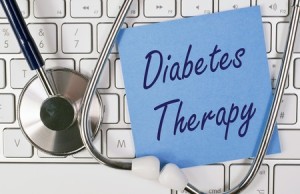Type 2 Diabetes: Stay Informed
 Given that 27 million Americans have been diagnosed with diabetes, the condition is well known by the general population, but very few people truly understand why and how diabetes impacts the body. You may have a family member or friend with diabetes, or you may even be concerned about your own blood sugar health, but without understanding the inner workings of diabetes it can be difficult to seek treatment. Read More
Given that 27 million Americans have been diagnosed with diabetes, the condition is well known by the general population, but very few people truly understand why and how diabetes impacts the body. You may have a family member or friend with diabetes, or you may even be concerned about your own blood sugar health, but without understanding the inner workings of diabetes it can be difficult to seek treatment. Read More










